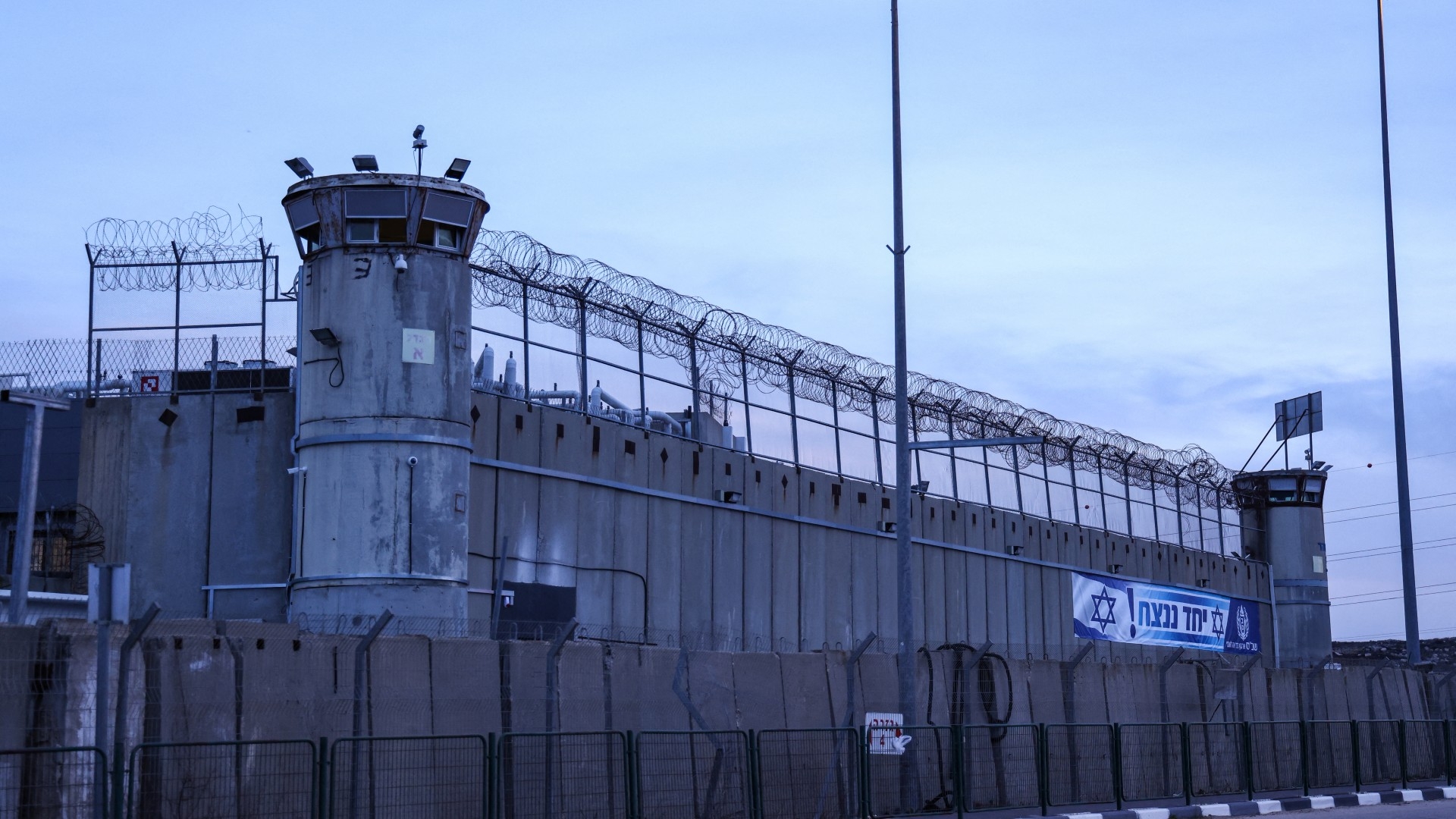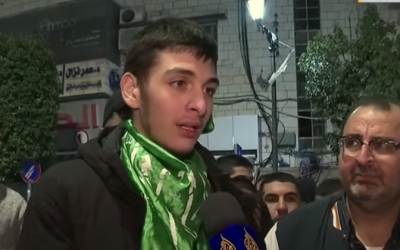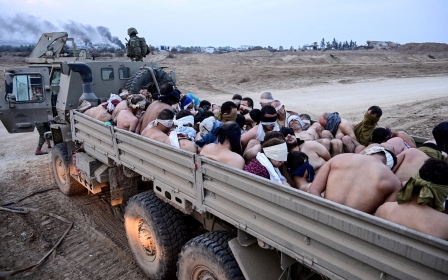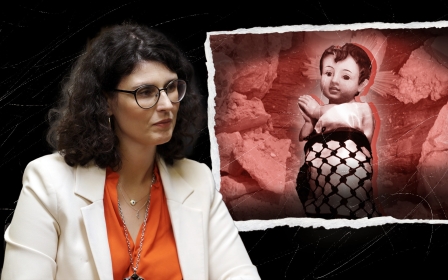War on Gaza: Israeli prison guards suspected of abuse in death of Palestinian prisoner

Nineteen Israeli prison guards are under investigation on suspicion of involvement in the death of a Palestinian prisoner last month.
An autopsy showed signs of severe violence on the body of Thaer Abu Asab, who was 38 at the time of his death in Ketziot Prison on 18 November. Reports in Israeli media say he was beaten severely and died of his wounds hours later.
However, the autopsy on Abu Asab’s body remains inconclusive.
Haaretz reported that the suspects are accused of “causing injury, severe harm under aggravated circumstances, and obstruction of the investigation, which involves senior figures in law enforcement.”
“We know there were beatings on the entire cell,” Sulaiman Shahin, representative of the Abu Asab family, told Middle East Eye.
“For some reason, they took him [aside] and he endured exceptional beatings.”
Moaz Abu Asab, Thaer’s brother, told MEE he was able to learn about what happened to his brother due to released prisoners’ testimonies.
“My brother received a blow to his head to the point that a piece of his skull fell to the ground and blood filled the floor of the room,” he said, quoting a former detainee who was in the same prison section as Thaer.
“[The special units] left without caring about his condition."
Shahin added that Israeli authorities did not inform Abu Asab’s family of the cause of his death when it was first announced.
Follow Middle East Eye's live coverage for the latest on the Israel-Palestine war
Abu Asab, from the occupied West Bank city of Qalqilya, was imprisoned during the second Palestinian intifada in 2005 on a charge of attempted murder.
He is the sixth Palestinian prisoner to die in Israeli custody since 7 October.
According to several testimonies, Israeli prison guards have taken an even harsher approach to Palestinian prisoners since the outbreak of the latest war in Gaza. Many have spoken of intensified physical abuse and beatings, as well as sexual violence against detainees.
The current war on Gaza started when a Hamas-led assault on Israel on 7 October killed over 1,200 Israelis. Israel’s relentless retaliatory bombing of Gaza and its subsequent ground incursion has killed over 19,000 Palestinians and destroyed massive areas of the Palestinian enclave.
Israel’s national security minister, Itamar Ben Gvir, expressed support for the accused prison guards, claiming they have “the presumption of innocence”.
Ben Gvir also called the Palestinian prisoners “human scum, murderers, who pose a security risk, and I would suggest not to slander the prison guards and prejudge them".
'What crooked justice are they talking about?'
In response to a request from MEE, Israeli prison authorities said prison guards are facing a rising level of “challenges and threats” but they attempt to maintain “professionalism and values”.
“Events that require an investigation, if any, will take place in full cooperation with the investigating unit until its conclusion,” they added.
Shahin said his efforts are currently concentrated on ensuring a proper investigation takes place, and that the issue isn't swept under the rug.
Moaz says Abu Asab’s family, who have been in distress since the death of their son, do not trust Israeli authorities, and would like his case transferred to an international court instead.
“They say that they will hold the jailers accountable, while Itamar Ben Gvir, who is in charge of them, says that the Palestinian prisoners are scum,” he said. “What crooked justice are they talking about?”
Middle East Eye propose une couverture et une analyse indépendantes et incomparables du Moyen-Orient, de l’Afrique du Nord et d’autres régions du monde. Pour en savoir plus sur la reprise de ce contenu et les frais qui s’appliquent, veuillez remplir ce formulaire [en anglais]. Pour en savoir plus sur MEE, cliquez ici [en anglais].





